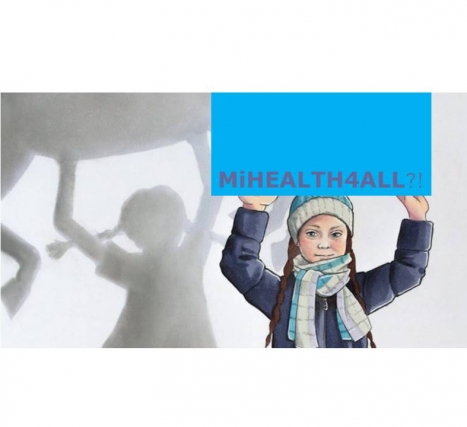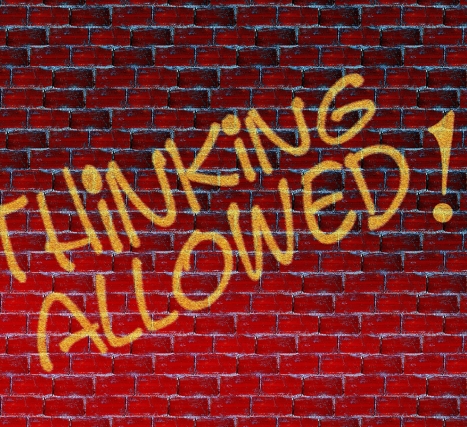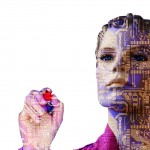
With precision medicine in a healthier future?
At the moment several hypes are on the health (care) horizon which are linked to buzzwords like “Precision medicine”, “Big Data”, “Digital health solutions”, “Patient centred models”, the „4P’s „. Patients are switched to Consumers.
Financially potent new entrants are shaking the “old” and very profitable industry in parallel with payers new demands for proven outcome. They challenge the role of the intermediaries – the physicians self-perceptions – as well. Long enough we experienced a steady state. A highly networked peer group – providers, politics, payers and selected industry partners – with huge “walls” – entry barriers around them – defended overcome habits and solutions, being happy that the patients were patient. Probably too long they neglected that inbreeding leads to degeneration. But now with the risk to lose profitability, the need to change the business model, something starts to move…
.. but my first impression upon the upcoming future like I presence it, does not lead to a better feeling either. Algorithms take over, sensors on, in and around me will generate “Big Data”- and decide what I should do – either automatically or artificial intelligence will “nudge” me to act.
Considering the underlying quality of data, the knowledge about systems, the individuality of each of us, the continuous change of our individual “state of being” depending on the environment we are in, I question, whether algorithm are the better physicians?
How will they be qualified for their purpose – (read the following: Machines Of Loving Grace / Brauchen wir einen Leinenzwang für Algorithmen?).
I sense a rather unreflecting transfer of approaches which are successful in the IT and Internet sphere into the health care denying the obvious: Human beings and ”their state of being” called health is the result of systems- interactions and not of easy machines. As we are at the edge of leaving the mechanistically – the machine age and enter the biological – the systems century we should not step backwards applying reductionism to complexity.
But potentially the involved do not realize it, as technical disciplines evolved in silos over the last 20 years. Not understanding each other and not even being aware of it, is one of the most critical issues that need to change in technology driven settings if we want to find the best possible solutions. The IT typical trial and error approach alone might become risky.
Why should I exchange my dependency from the physisian in favour of machines and their limitations? When and under which conditions is artificial intelligence (?) better then human intelligence? Why should we give up a strengths which only the human being has and which made us so successful – social learning. Intuition is part of it.
Yes, it is true medical or wellbeing decisions lack a sound data base. We could have started a long time ago to use longitudinal data and interconnect them with environmental data to recognize individual pattern. But still today physicians are only rarely using all the data which are available; especially in primary care where most citizens enter the system. It is time to integrate the right (smart?) data better with the natural physicians intuition trained on many citizens seen.
Finally in the “brave new world” the patients mutate into consumers – hopefully consuming a lot … of what? Unfortunately health cannot be consumed – it is a state of being – and is defined by any individual herself, changing over the lifetime.
The key question for me to answer ist:“What is your goal?“
My goal is to stay healthy as long as possible. That is for what I would like to pay health insurance, spend taxes. Just to remind all of us – health systems are no free markets as the offerings I pay for are decided by others – not the original payers. Until now they were mostly patient, but..
Why nobody seems willing to build models based on active, responsible citizen? Buying an IPhone is different from taking decisions when you are sick. I am convinced that the “active responsible citizen” (der mündige Bürger) will be the better and more profitable target for any business model.
As the world moves ever faster into technical interconnectedness it is becoming critical to re- enable citizens again to judge and decide themselves. Otherwise the controlling cost, the rules and regulations will withdraw increasing amounts of money which would be better spent on solutions for health and education. Especially the health industry with their intermediaries needs to be sensible – losing more trust will be very expensive as we should have learned from the banking system.
My conclusion:
Yes, we should use more qualified, well thought through data to support decisions and to enable physicians and citizens to apply relevant parts of the huge amount of new knowledge available. But this is only a minor part of change necessary to come from disease management to a health system:
• the roles have to be redefined,
• open infrastructure need to be put in place where citizen can contribute according their views and could be trained to become heath literate
• the focus should change to maintaining health instead of caring (curing?) disease in an end – of – pipe approach only
• we need a careful well reflected definition of the interphase between algorithm and humans.
• and we need to open a discussion in our societies, who has which responsibility, how can the government enable and support responsibility leading to the final question who pays for what, if we want to keep a fair and social health system in an ever more individual world.
Sometimes it seems to me, we are afraid of us – our species – the human being, machines are much easier to manage. True, risky and not very fascinating.







Thanks so much for sharing all with the awesome info! I am looking forward to checking out far more posts! geekeggggkde